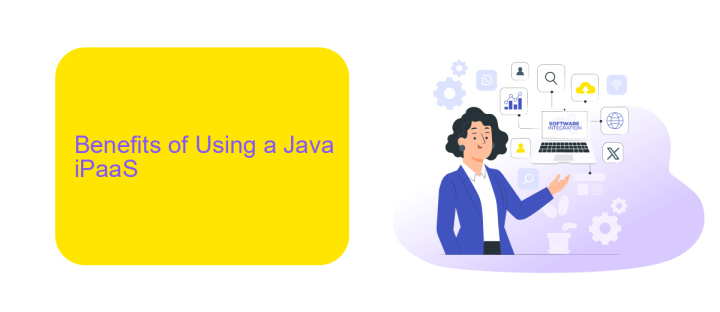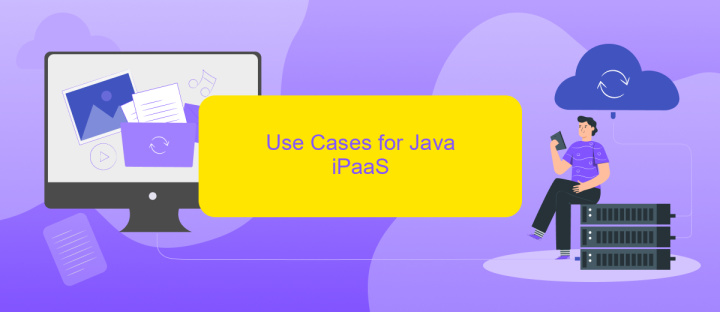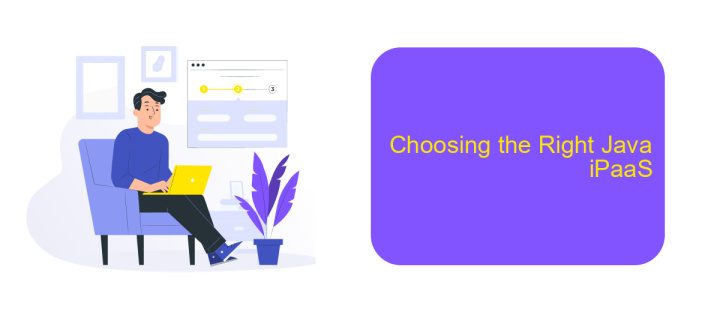Java iPaaS
Java Integration Platform as a Service (iPaaS) is revolutionizing the way businesses handle their integration needs. By offering a cloud-based solution, Java iPaaS enables seamless connectivity between disparate systems, applications, and data sources. This approach not only simplifies complex integration processes but also enhances scalability, flexibility, and efficiency, making it an essential tool for modern enterprises aiming for digital transformation.
Introduction to Java iPaaS
Java Integration Platform as a Service (iPaaS) offers a robust solution for integrating various applications and services seamlessly. By leveraging Java iPaaS, businesses can streamline their workflows, automate processes, and enhance overall efficiency. This platform enables organizations to connect disparate systems, ensuring smooth data flow and reducing manual intervention.
- Automated data synchronization
- Scalable integration solutions
- Real-time data processing
- Enhanced security and compliance
One notable service that aids in setting up integrations is ApiX-Drive. It simplifies the process of connecting multiple applications, making it easier for businesses to manage their data and workflows. With ApiX-Drive, users can automate data transfers, schedule tasks, and monitor integration performance, all within a user-friendly interface. Java iPaaS, combined with tools like ApiX-Drive, empowers organizations to achieve seamless integration and operational excellence.
Benefits of Using a Java iPaaS

Utilizing a Java iPaaS (Integration Platform as a Service) offers numerous advantages for businesses aiming to streamline their integration processes. One significant benefit is the ability to connect various applications and data sources seamlessly, enabling real-time data synchronization and improved workflow automation. This leads to enhanced operational efficiency and reduced manual intervention, allowing teams to focus on more strategic tasks. Moreover, Java iPaaS solutions often come with pre-built connectors and templates, simplifying the integration process and reducing development time.
Another key advantage is the scalability and flexibility that Java iPaaS platforms provide. Businesses can easily scale their integrations as they grow, without worrying about infrastructure limitations. Additionally, platforms like ApiX-Drive offer user-friendly interfaces and powerful tools to manage and monitor integrations effectively. This ensures that even non-technical users can set up and maintain integrations with minimal effort. Furthermore, the robust security features of Java iPaaS platforms help protect sensitive data, ensuring compliance with industry standards and regulations.
Use Cases for Java iPaaS

Java iPaaS solutions offer a versatile platform for integrating various applications and services, making them indispensable for modern enterprises. By leveraging these platforms, businesses can streamline operations, improve data flow, and enhance overall productivity.
- Data Synchronization: Java iPaaS platforms enable seamless data synchronization between different systems, ensuring that all business-critical information is up-to-date and consistent across the organization.
- API Management: These solutions simplify API management, allowing developers to create, monitor, and secure APIs efficiently. For instance, services like ApiX-Drive facilitate easy integration and automation between various applications.
- Real-Time Analytics: Java iPaaS platforms support real-time data processing and analytics, providing businesses with actionable insights that can drive informed decision-making.
- Legacy System Integration: They offer tools to integrate legacy systems with modern applications, extending the life and functionality of older software without extensive redevelopment.
- Automated Workflows: Java iPaaS solutions help automate repetitive tasks and workflows, reducing manual effort and minimizing errors, thus increasing operational efficiency.
By implementing Java iPaaS solutions, companies can achieve greater agility and flexibility in their IT infrastructure. These platforms not only enhance integration capabilities but also provide robust tools for managing and optimizing business processes, ensuring a competitive edge in the market.
Choosing the Right Java iPaaS

Choosing the right Java iPaaS can be a daunting task, given the myriad of options available. The key is to identify your specific integration needs and evaluate platforms based on their ability to meet these requirements. Consider factors such as scalability, ease of use, and support for various integration patterns.
One crucial aspect to look for is the platform's ability to handle complex integrations seamlessly. For instance, ApiX-Drive offers a robust solution for setting up and managing integrations without requiring extensive coding knowledge. This can be particularly beneficial for businesses looking to streamline their workflows efficiently.
- Scalability: Ensure the iPaaS can grow with your business needs.
- Ease of Use: A user-friendly interface can significantly reduce the learning curve.
- Integration Patterns: Support for various patterns like point-to-point, publish/subscribe, etc.
- Support and Documentation: Comprehensive resources and responsive support are crucial.
Ultimately, the right Java iPaaS should align with your business objectives and technical requirements. A thorough evaluation of the features and capabilities, including those offered by platforms like ApiX-Drive, will help you make an informed decision.
Conclusion
In conclusion, Java iPaaS solutions have proven to be highly effective in streamlining integration processes across diverse systems and applications. Their robust frameworks and extensive libraries enable developers to seamlessly connect various endpoints, ensuring smooth data flow and operational efficiency. The flexibility and scalability of Java iPaaS platforms make them suitable for businesses of all sizes, from startups to large enterprises, looking to enhance their integration capabilities.
Moreover, services like ApiX-Drive further simplify the integration landscape by offering user-friendly interfaces and pre-built connectors for popular applications. By leveraging such tools, organizations can significantly reduce the time and effort required to set up and maintain integrations. As the demand for interconnected systems continues to grow, Java iPaaS solutions, complemented by services like ApiX-Drive, will play a crucial role in driving innovation and operational excellence in the digital era.
- Automate the work of an online store or landing
- Empower through integration
- Don't spend money on programmers and integrators
- Save time by automating routine tasks
FAQ
What is Java iPaaS?
How can Java iPaaS benefit my business?
Is coding knowledge necessary to use Java iPaaS?
How secure is data transfer through Java iPaaS?
Can I integrate legacy systems with Java iPaaS?
Routine tasks take a lot of time from employees? Do they burn out, do not have enough working day for the main duties and important things? Do you understand that the only way out of this situation in modern realities is automation? Try Apix-Drive for free and make sure that the online connector in 5 minutes of setting up integration will remove a significant part of the routine from your life and free up time for you and your employees.


